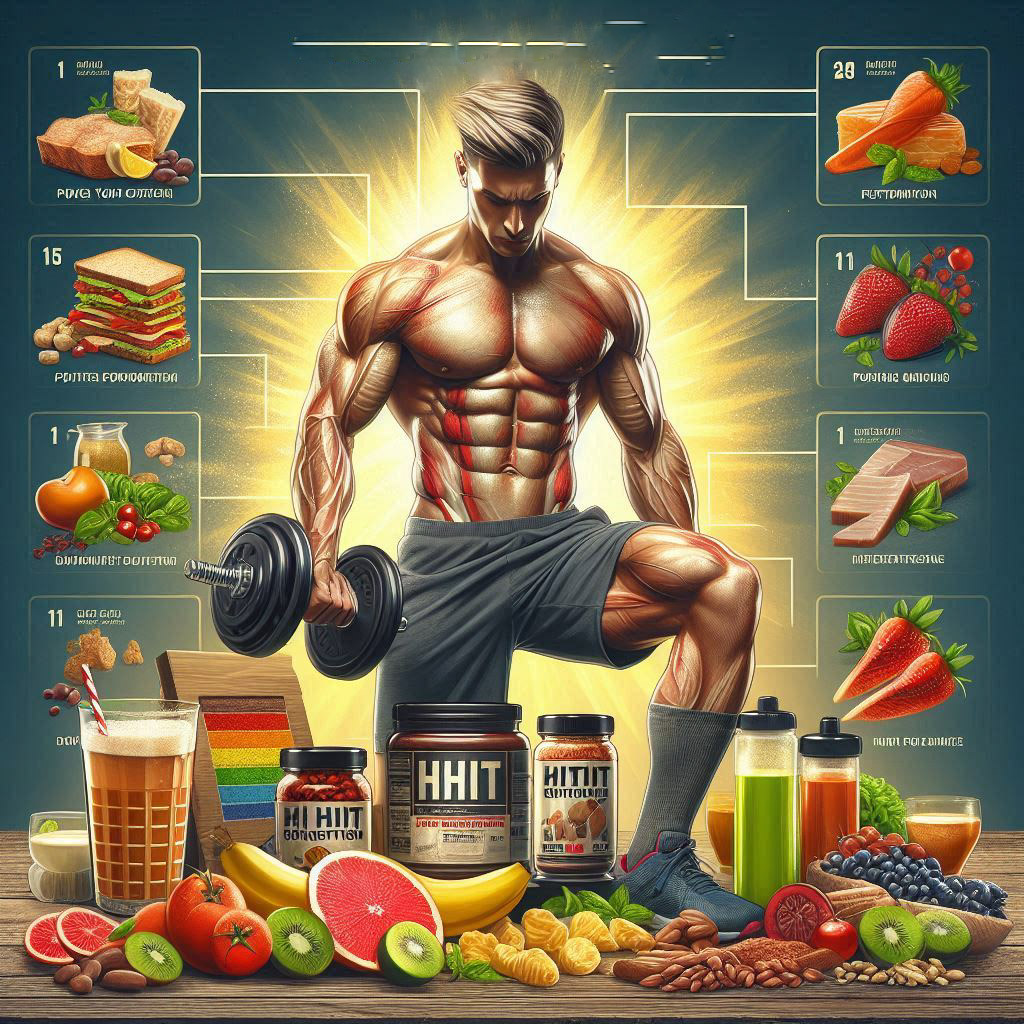Your heart is pounding, sweat is dripping, and you’re giving your HIIT workout everything you’ve got – but are you fueling your body properly to maximize those intense training sessions? When it comes to high-intensity interval training, what you eat can make the difference between crushing your workout and hitting the wall. What you need is appropriate nutrition for HIIT workouts. Let’s dive into the science-backed nutrition strategies that will elevate your HIIT performance to the next level.
Why Nutrition Matters for HIIT Workouts
High-intensity interval training places unique demands on your body. Unlike steady-state cardio or traditional strength training, HIIT workouts:
- Deplete glycogen stores rapidly
- Increase metabolic demands
- Require quick energy replenishment
- Create significant muscle stress
Understanding these demands is key to developing the right nutrition strategy.
Pre-HIIT Workout Nutrition: Timing Is Everything
2-3 Hours Before Your Workout
The ideal pre-HIIT meal should include:
- Complex carbohydrates (45-60g)
- Lean protein (20-30g)
- Small amount of healthy fats (10-15g)
Perfect Pre-HIIT Meal Examples:
- Oatmeal with banana, protein powder, and almond butter
- Whole grain toast with scrambled eggs and avocado
- Greek yogurt with berries, granola, and honey
30-60 Minutes Before HIIT
Quick energy boost options:
- Banana with a small handful of almonds
- Apple with 1 tablespoon peanut butter
- Small smoothie (fruit + protein)
During HIIT Workout Nutrition
For sessions under 45 minutes:
- Water is typically sufficient
- Aim for 4-6 oz every 15 minutes
For longer HIIT sessions:
- Consider electrolyte replacement
- Sports drinks may be beneficial
- Branch Chain Amino Acids (BCAAs) can help
Post-HIIT Nutrition: The Recovery Window
The Critical 30-Minute Window
Your body is primed to absorb nutrients immediately after HIIT. Focus on:
Carbohydrates:
- Replenish glycogen stores
- Aim for 0.5-0.7g per pound of body weight
- Choose fast-absorbing options
Protein:
- Support muscle recovery
- Target 20-30g high-quality protein
- Include essential amino acids
Perfect Post-HIIT Recovery Meals
- The Classic Shake
- 1 scoop whey protein
- 1 banana
- 1 cup berries
- 1 cup almond milk
- 1 tablespoon honey
- The Power Bowl
- 1 cup quinoa
- 4 oz grilled chicken
- 1 cup roasted vegetables
- ½ avocado
- Lemon-tahini dressing
- The Quick Fix
- 2 rice cakes
- 2 tablespoons almond butter
- 1 sliced banana
- Drizzle of honey
- Glass of chocolate milk
Daily Nutrition Requirements for HIIT Athletes
Macronutrient Breakdown
Carbohydrates:
- 45-65% of total calories
- Focus on complex carbs
- Time intake around workouts
Protein:
- 20-30% of total calories
- 1.6-2.2g per kg body weight
- Spread throughout the day
Fats:
- 20-35% of total calories
- Emphasize healthy sources
- Limit before workouts
Supplements to Support HIIT Training
Essential Supplements
- Creatine Monohydrate
- Supports power output
- Enhances recovery
- 5g daily maintenance dose
- BCAAs
- Reduces muscle breakdown
- Supports recovery
- Useful during fasted training
- Electrolytes
- Maintains hydration
- Supports performance
- Critical for intense sessions
Optional Supplements
- Beta-alanine
- Caffeine
- Magnesium
- Fish oil
Hydration Strategy for HIIT
Daily Hydration Goals
- Minimum 8-10 glasses water
- Add 16-20 oz per hour of training
- Monitor urine color (pale yellow ideal)
Pre-Workout Hydration
- 16-20 oz water (2-3 hours before)
- 8-10 oz water (15-30 minutes before)
During Workout
- 4-6 oz every 15 minutes
- Include electrolytes for sessions >45 minutes
Post-Workout
- 16-24 oz per pound lost during workout
- Include electrolytes if sweating heavily
Common Nutrition Mistakes to Avoid
- Training Fasted
- Can reduce performance
- May increase muscle breakdown
- Consider BCAAs if necessary
- Over-Restricting Carbs
- Reduces power output
- Compromises recovery
- Affects hormone balance
- Inadequate Protein
- Slows recovery
- Reduces adaptation
- Limits progress
Meal Planning for HIIT Success
Sample Daily Meal Plan
Breakfast (Pre-HIIT)
- Steel-cut oats
- Whey protein
- Banana
- Almond butter
Post-Workout
- Recovery shake or meal
- Focus on carbs + protein
Lunch
- Lean protein
- Complex carbs
- Vegetables
- Healthy fats
Dinner
- Similar to lunch
- Slightly lower carbs if not training
Snacks
- Fruit + protein
- Nuts + dried fruit
- Greek yogurt + berries
Special Considerations
Vegetarian/Vegan Athletes
- Increase protein variety
- Consider supplementation
- Focus on complete proteins
Gluten-Free Athletes
- Choose alternative grains
- Read labels carefully
- Plan ahead for travel
Tracking Progress and Adjusting
Keep a food journal noting:
- Energy levels
- Workout performance
- Recovery quality
- Sleep patterns
- Hunger levels
Conclusion
Proper nutrition for HIIT workouts isn’t just about eating healthy – it’s about strategically fueling your body for optimal performance and recovery. Start implementing these nutrition strategies gradually, monitor your progress, and adjust based on your body’s response.
Remember, nutrition is highly individual. Use these guidelines as a starting point and customize based on your specific needs, goals, and schedule. With the right nutrition strategy, you’ll be able to push harder, recover faster, and achieve better results from your HIIT workouts.
[Call-to-action: Want personalized nutrition guidance for your HIIT training? Sign up for our newsletter to receive weekly meal plans and recipes designed for high-intensity training!]














